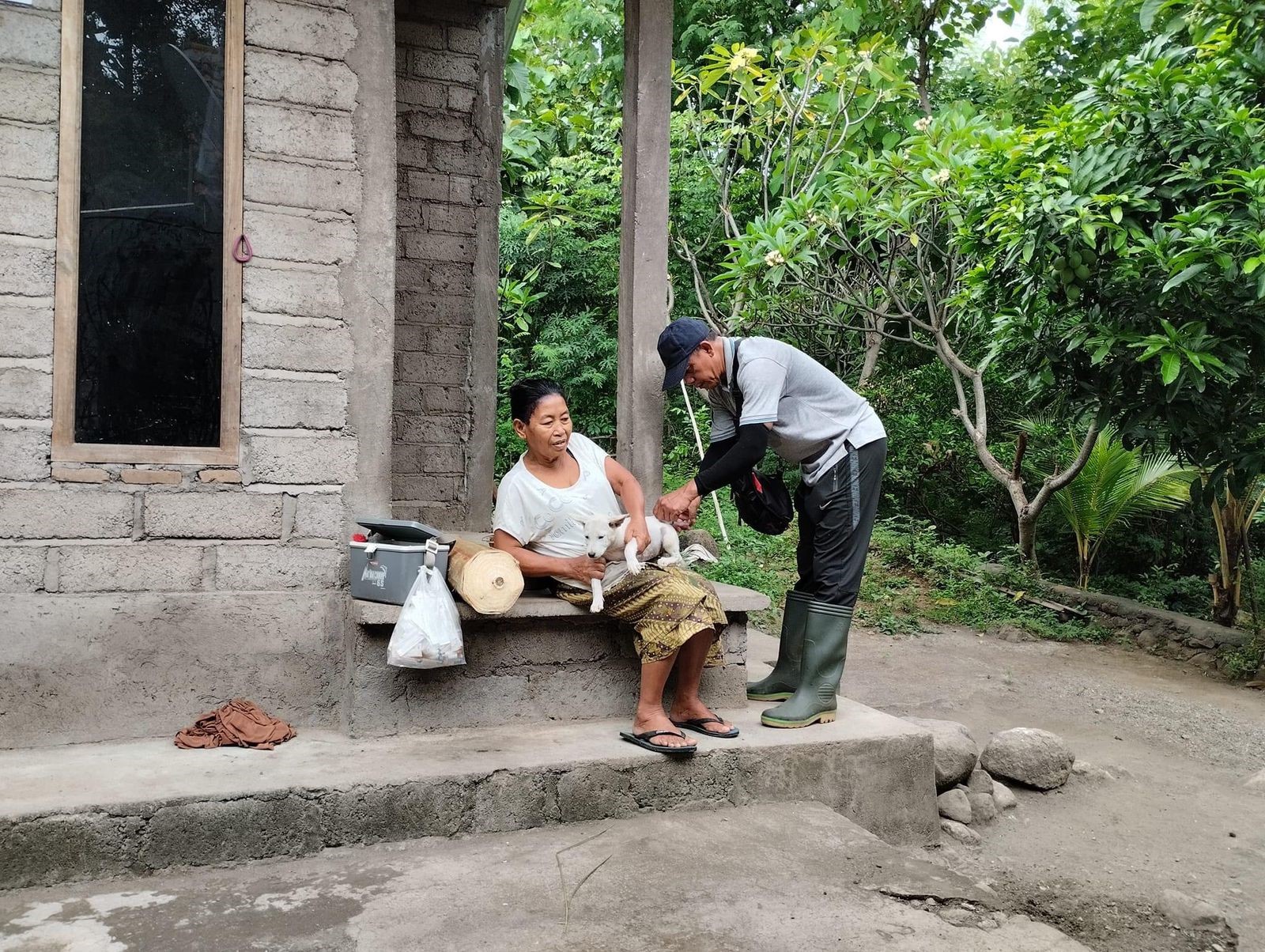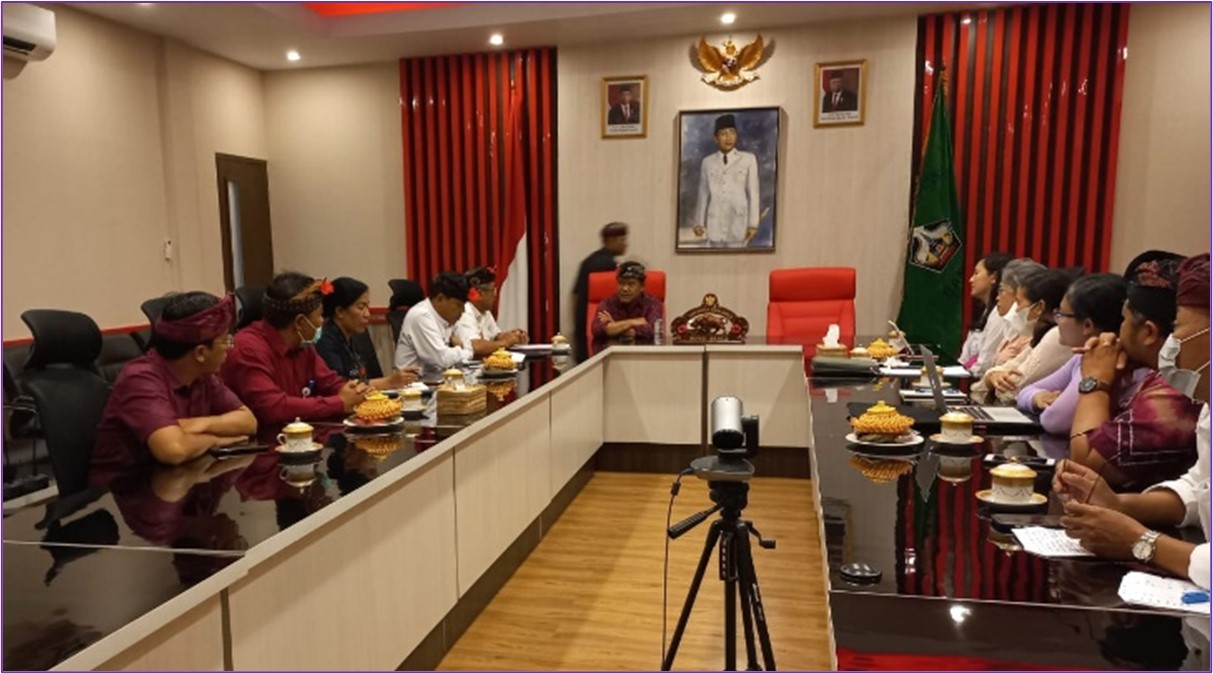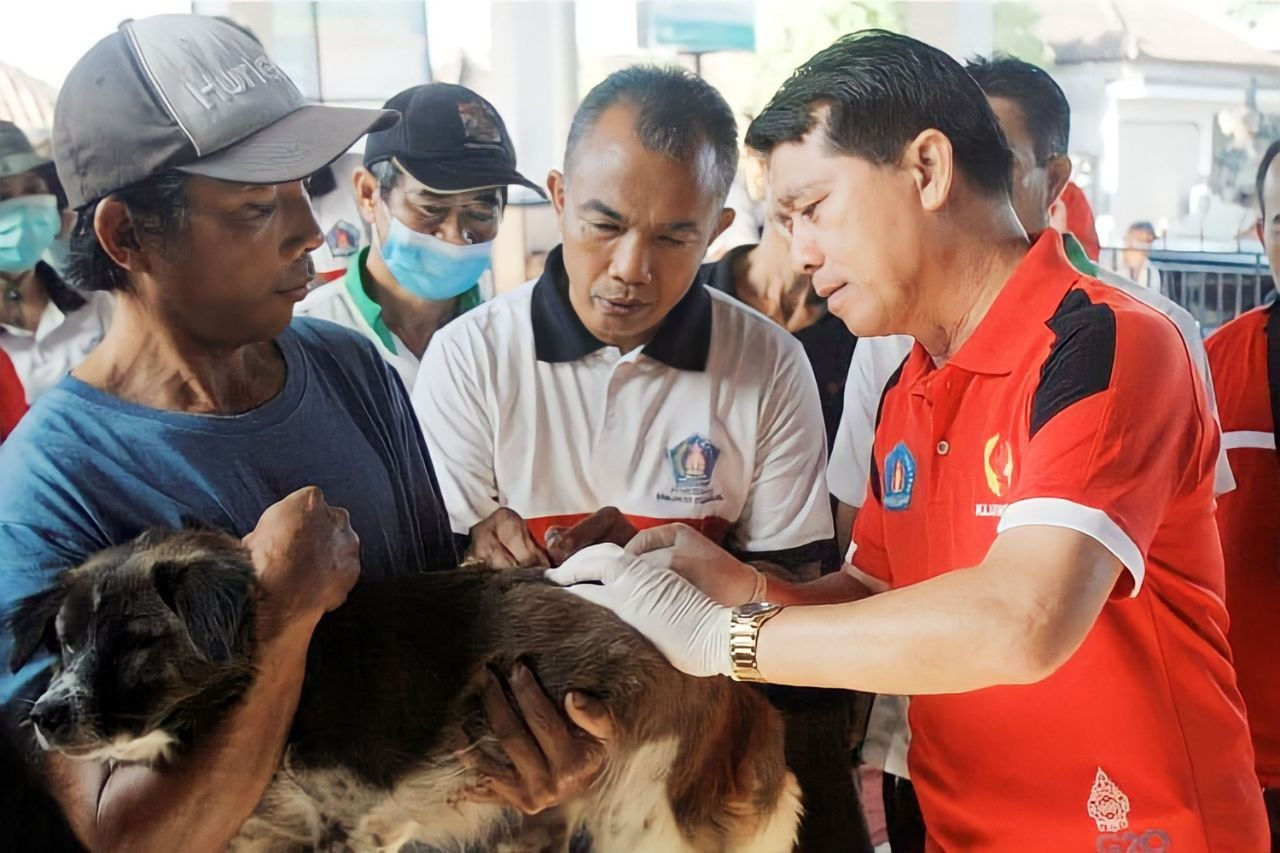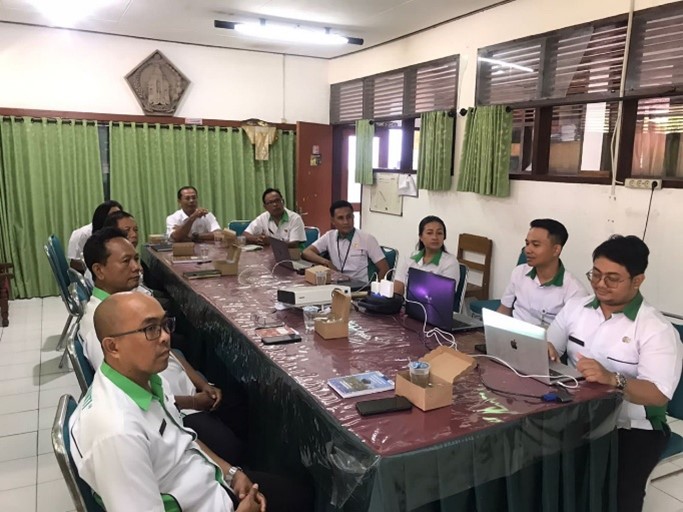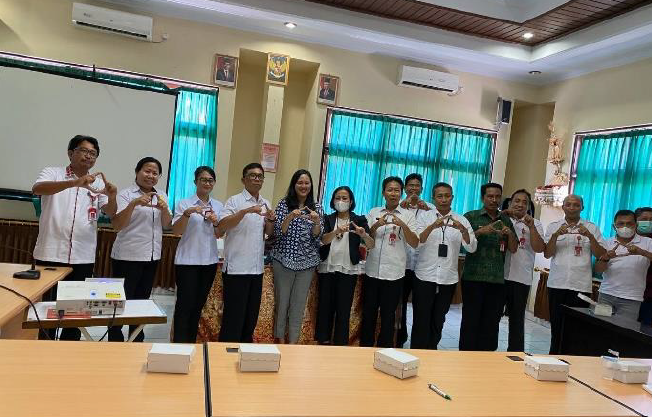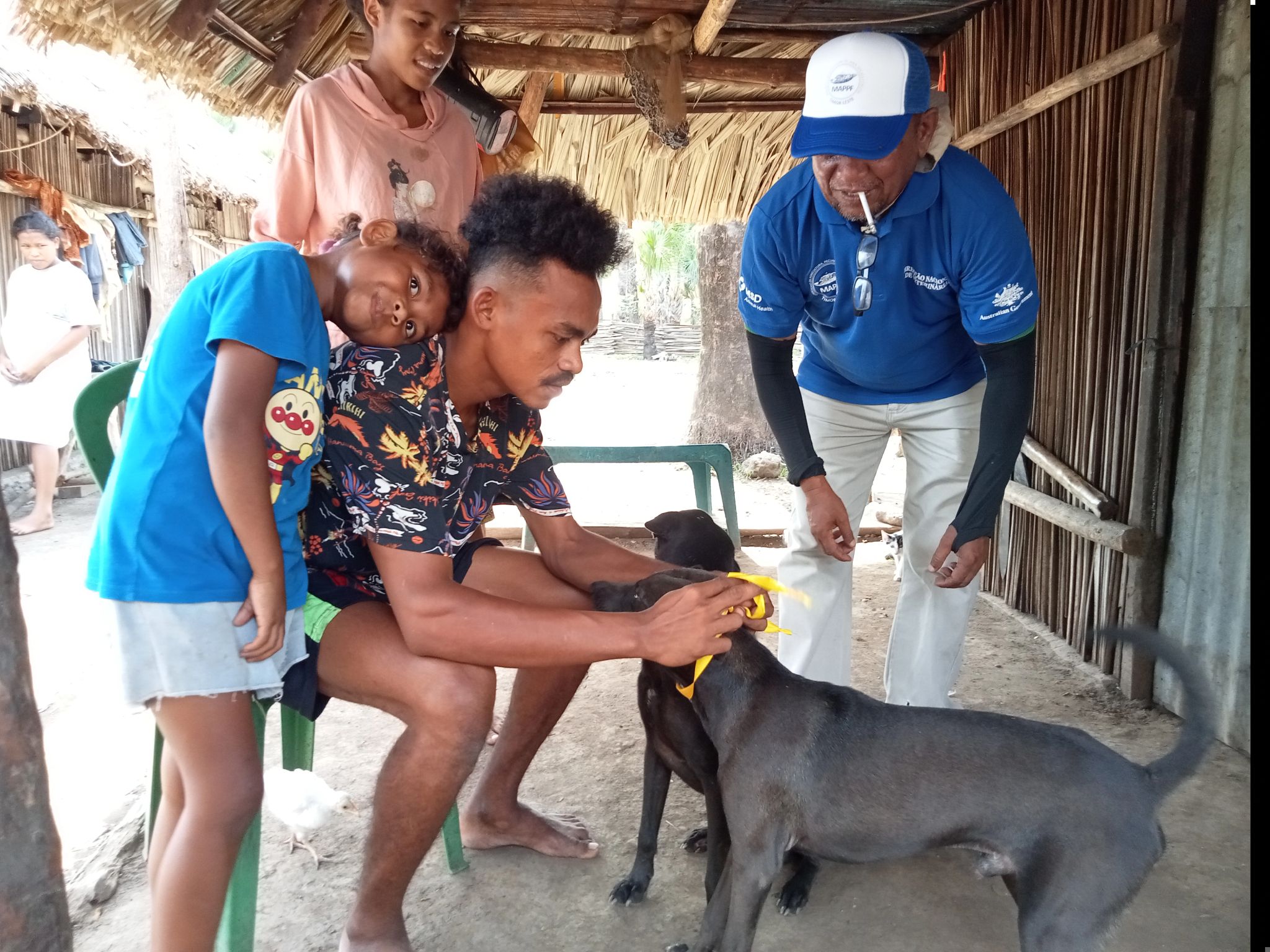
Rabies continues to pose a serious public health threat in Bali, Indonesia. By mid-2022, more than 150 villages in Bali reported rabies cases, alongside rising bite incidents and tragic human deaths. Despite efforts such as vaccination, research, surveillance, education, and sterilisation, eliminating rabies remains challenging due to the large free-roaming dog population and competing health priorities.
Meeting with the Regent of Bangli.
Essential Role of Political Commitment and Local Resources
In Bali, an alliance has come together to step up the fight against rabies by engaging local leaders. The Indonesian Public Health Association Bali Branch (IAKMI Bali), the Asia Pacific Cities Alliance for Health and Development (APCAT), the Bali Provincial Health Office, and the Provincial Agriculture Department have teamed up to roll out a comprehensive control programme.
This partnership demonstrates how local political commitment can translate into concrete action. The coalition of local agencies, with WOAH support and Australian Government funding, has been driving awareness, mobilising action, and rallying communities to protect both people and animals from rabies.
The initiative has achieved remarkable results, largely thanks to local authorities’ willingness to allocate resources and integrate rabies control into public health agendas. Political leadership at the regency and city level has been particularly evident. Mayors and regents in Bali have agreed to dedicate local budgets not only for vaccines but also for the operational costs of vaccination campaigns, which have historically been a major challenge.
Mayor of Klungkung launching the vaccination campaign.
Political Will in Action
Local leaders in Klungkung, Buleleng, Badung, and Bangli regencies converted political commitment into budgetary allocations. This demonstrates that local solutions, supported by local financing, can sustainably address rabies challenges.
The financial commitments strengthened mass vaccination campaigns across the island. With 200,000 doses from the WOAH vaccine bank, supported and funded by the Australian Government, and additional procurement by provincial and national authorities, local bodies mobilised resources to ensure efficient distribution and use. By early 2023, nearly 165,000 dogs had been vaccinated. Some regencies, such as Buleleng, achieved exceptional coverage, surpassing 95%, while others, including Badung and Jembrana, vaccinated more than one-third of their dog populations. These results illustrate the effectiveness of combining external vaccine support with locally financed operations and personnel.
Meeting to develop a local regulation.
Strengthening Sustainability Through Local Regulation
Building on these successes, local governments are ensuring that rabies remains a long-term priority. Mayors and regents are now drafting and endorsing new local regulations that mandate rabies prevention measures, budgetary planning, and community participation. These measures will embed rabies prevention into governance structures, ensuring continuity beyond short-term campaigns.
This renewed momentum is reinforced by Bali’s One Health approach, which emphasises collaboration across sectors. Provincial agriculture and health departments now coordinate closely with national ministries, civil society, and universities. Multisectoral meetings and technical workshops have brought together over 80 institutions, generating consensus on resource mobilisation, risk communication, and enforcement mechanisms. Importantly, the adoption of a “first-expiry, first-out” system has ensured efficient use of vaccine stocks ahead of their May 2023 expiration.
Coordination meeting with local authorities.
Local leadership is key
Challenges remain where coverage must still reach 70% of the dog population to break transmission, and sustaining attention amid other health priorities is not easy. Yet Bali’s experience proves a powerful lesson: vaccines and technical tools are only effective when matched by political will, financial commitment, and shared accountability.
As World Rabies Day 2025 reminds us, local leadership is key. In Bali, when leaders took ownership, communities and partners could act together, bringing the island one step closer to a future free from rabies.
